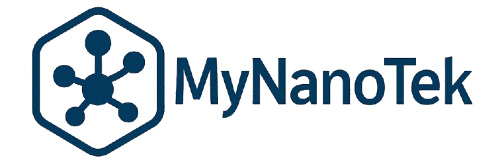Nanotechnology in customized nutrition: A tailored approach
What If Your Diet Could Be Perfectly Tailored Just for You?
In a world where one-size-fits-all solutions are rapidly becoming obsolete, the quest for personalized health and nutrition is gaining momentum. Have you ever wondered if your dietary needs could be as unique as your fingerprint? Enter nanotechnology, a groundbreaking innovation in the field of customized nutrition. This technology is not just a trend; it’s a revolution in how we understand and interact with food and health.
The Problem: A Cookie-Cutter Approach to Nutrition
For decades, dietary recommendations have been generalized, often ignoring the individual differences in genetics, lifestyle, and personal health goals. This oversight leads to a myriad of issues such as nutrient deficiencies or excesses, and even chronic health conditions. With the global increase in lifestyle diseases, the demand for a more personalized approach is higher than ever.
“Let food be thy medicine and medicine be thy food.” – Hippocrates
Despite the ancient wisdom of Hippocrates, the complexity of modern life means achieving this ideal requires more than intuition. It necessitates cutting-edge technology capable of addressing individual dietary needs with precision.
Agitation: The Shortcomings of Traditional Nutrition
Traditional dietary plans often fail to account for the biological uniqueness of each individual. Consider these challenges:
- Lack of personalization leading to ineffective dietary outcomes.
- Inability to monitor real-time nutritional needs.
- Generalized advice that may not suit specific health conditions.
- Difficulty in managing nutrient absorption and digestion variability.
These issues highlight a crucial gap in achieving optimal health and wellness. The need for innovation in nutrition is not just a luxury but a necessity for improving quality of life.
Solution: Nanotechnology Revolutionizing Nutrition
Nanotechnology, with its ability to manipulate materials at the molecular level, offers a revolutionary approach to personalized nutrition. By integrating nanotech applications, we can now create dietary solutions that are as unique as the individuals themselves.
How Nanotechnology Works in Nutrition
Nanotechnology in nutrition involves the use of nanoparticles to enhance the delivery and absorption of nutrients. Here’s how it works:
- Encapsulation: Nutrients are encapsulated in nanoparticles to protect them from degradation and improve bioavailability.
- Targeted Delivery: Nanoparticles can deliver nutrients directly to specific cells or tissues, optimizing nutritional benefits.
- Enhanced Absorption: Nano-sized particles are more easily absorbed by the body, ensuring maximum nutrient intake.
- Controlled Release: Nanotechnology allows for the controlled release of nutrients over time, providing sustained nutritional support.
Encadré: Nanoparticles – Particles between 1 and 100 nanometers in size, often used in technology to enhance material properties at the molecular level.
Innovations Driving the Future of Nutrition
As we look to the future, several exciting technology trends are shaping the landscape of personalized nutrition through nanotechnology:
- Smart Supplements: Nutraceuticals enhanced with nanotech for better efficacy.
- Wearable Tech Integration: Devices that monitor nutrient levels in real-time and adjust dietary plans accordingly.
- AI-Driven Personalization: Machine learning algorithms that tailor nutrition plans based on genetic and lifestyle data.
- Food Safety Enhancements: Nanoparticles used to detect contamination and improve shelf life of food products.
Real-World Applications and Success Stories
Several companies and research institutions are pioneering the application of nanotechnology in nutrition. For instance, using nano-emulsion technology, certain supplements now offer improved bioavailability, helping individuals absorb vitamins and minerals more effectively. Moreover, personalized nutrition startups are leveraging AI and nanotech to create bespoke dietary plans that cater to an individual’s specific genetic makeup and health goals.
These advancements are transforming the way we view nutrition, from a static set of guidelines to a dynamic, individualized journey.
Overcoming Challenges and Ethical Considerations
While the potential of nanotechnology in nutrition is vast, it is not without its challenges. There are concerns about the long-term effects of nanoparticles in the human body, which necessitates rigorous testing and regulation. Ethical considerations also arise around data privacy and the accessibility of these technologies to diverse populations.
Addressing these challenges requires collaboration between scientists, policymakers, and the public to ensure that nanotechnology in nutrition is safe, effective, and equitable.
Conclusion: Embrace the Future of Nutrition
The integration of nanotechnology into nutrition marks a significant leap forward in how we approach health and wellness. It provides the tools to tailor dietary solutions that meet the unique needs of each individual, promising to enhance health outcomes and improve quality of life.
As we continue to explore and refine these innovations, the future of nutrition looks bright. Now it’s your turn to join the conversation and explore how nanotechnology can transform your approach to diet and health.
